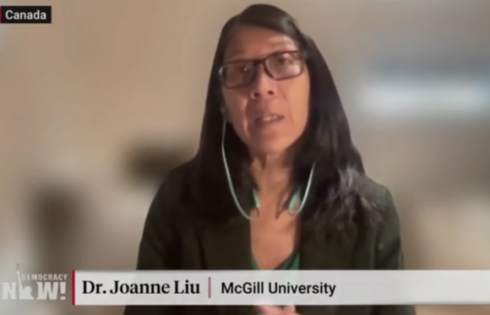
One reported rape doesn’t equal school negligence
More than a year before Paul Nungesser secured a handsome settlement from Columbia University for its conferring of academic credit on “Mattress Girl” Emma Sulkowicz’s art project calling him a rapist, a federal district judge slapped down his Title IX lawsuit for gender discrimination.
By assuming “sex-based discrimination” covers sex acts, Nungesser’s claim would let every person accused of sexual assault file a Title IX claim against their school, Judge Gregory Woods ruled.
But the ruling had an ominous tint for rape accusers as well, suggesting that in Woods’ court at least, they would have a difficult time arguing they faced sex-based discrimination from their schools (the only thing Title IX literally prohibits) because they alleged they were victims of sex acts.
Taken to its logical conclusion, the ruling suggested schools have no legal obligation under Title IX to investigate campus rape reports.
Woods’ federal appeals court, the 2nd Circuit, would later rule that Columbia’s actions against a male student accused of rape were plausibly “motivated to favor the accusing female over the accused male” based squarely on his sex (being male), and thus satisfied the Title IX test.
Now a different federal appeals court has put the same boundaries around Title IX claims as Woods, ruling against a high school student who claims she was raped at a fraternity party on a college recruiting visit.
MORE: Judge rules Title IX has nothing to do with sexual behavior
On Tuesday the St. Louis-based 8th Circuit affirmed a lower-court ruling in favor of Missouri’s Culver-Stockton College, saying that plaintiff “K.T.” was not a Culver-Stockton student and so could not plead “student-on-student harassment” against the college under the Supreme Court’s 1999 Davis ruling.
Even if K.T. were a student at Culver-Stockton, her claim would fail because she didn’t “plausibly allege”:
(1) an appropriate person at the College had actual knowledge of previous incidents of similar harassment so as to alert it to a substantial risk of further abuse, and (2) the College’s response to K.T.’s allegations was deliberately indifferent and caused her to undergo harassment, made her vulnerable to it, or subjected her to further discrimination.
The 8th Circuit cited its own 2003 precedent on school liability for alleged harassment, which is triggered when a school is “(1) deliberately indifferent (2) to known acts of discrimination (3) which occur under its control.”
By her own claims, K.T. doesn’t say that the college’s indifference subjected her to harassment – meaning its response “cannot be characterized as deliberate indifference that caused the assault,” as required under Title IX and legal precedent.
The plaintiff is also wrong that Culver-Stockton had “actual knowledge” of discrimination simply because she reported being raped, the 8th Circuit said.
The college would need to have “prior knowledge” of the same actions being committed by the alleged perpetrator, or have received “previous reports of sexual harassment occurring on the same premises.” K.T. never alleged that officials in the soccer program that recruited her knew that recruits “faced a risk of sexual harassment.”
It’s an even bigger leap to say that a single instance of “one-on-one peer harassment” creates the requisite “systemic effect of denying the victim equal access to an educational program or activity,” the court said:
“[I]n theory,” the [Supreme] Court explained [in Davis], “a single instance of sufficiently severe one-on-one peer harassment could be said to have such an effect, [but] we think it unlikely that Congress would have thought such behavior sufficient to rise to this level in light of the . . . amount of litigation that would be invited by entertaining claims of official indifference to a single instance of one-on-one peer harassment.”
According to the St. Louis Post-Dispatch, K.T. was 16 when she attended the fraternity party in February 2014.
In a report when she filed her suit a year and a half ago, the newspaper quoted K.T.’s lawyer as saying that the “chaperones” who are assigned to visiting students “semi-abandoned her.” That’s simply too vague to argue the college is legally liable, as opposed to the person who allegedly raped her.
As the Trump administration considers how to rein in the “campus rape frenzy” unleashed by its predecessor’s funding threats based on nonbinding guidance, it would be wise to take a literal view of Title IX and carefully read binding legal precedents such as Davis.
Read the opinion and Post-Dispatch story.
h/t Inside Higher Ed
MORE: Appeals court reinstates reverse discrimination case against Columbia
Like The College Fix on Facebook / Follow us on Twitter
IMAGE: CLS Digital Arts/Shutterstock






Please join the conversation about our stories on Facebook, Twitter, Instagram, Reddit, MeWe, Rumble, Gab, Minds and Gettr.